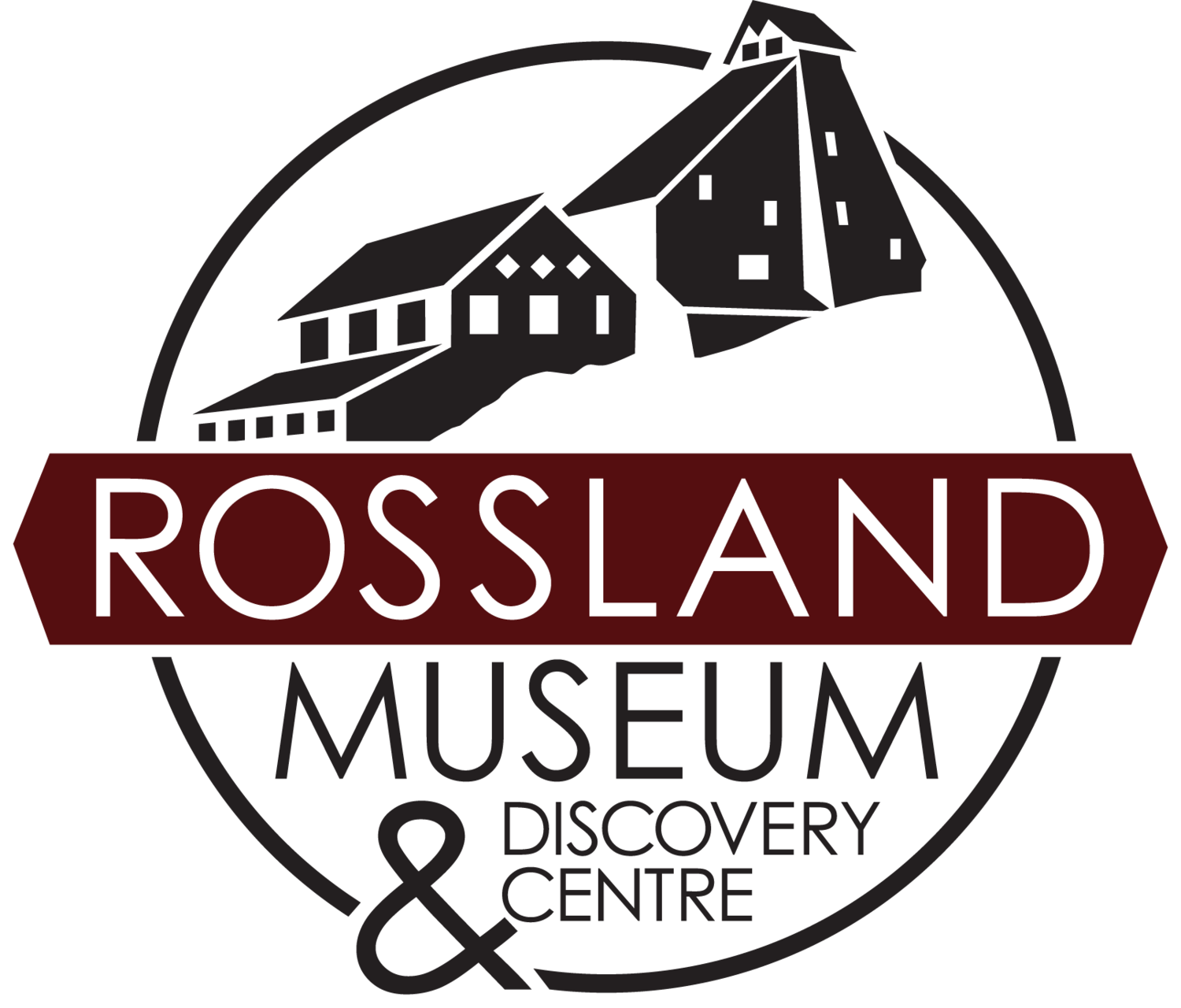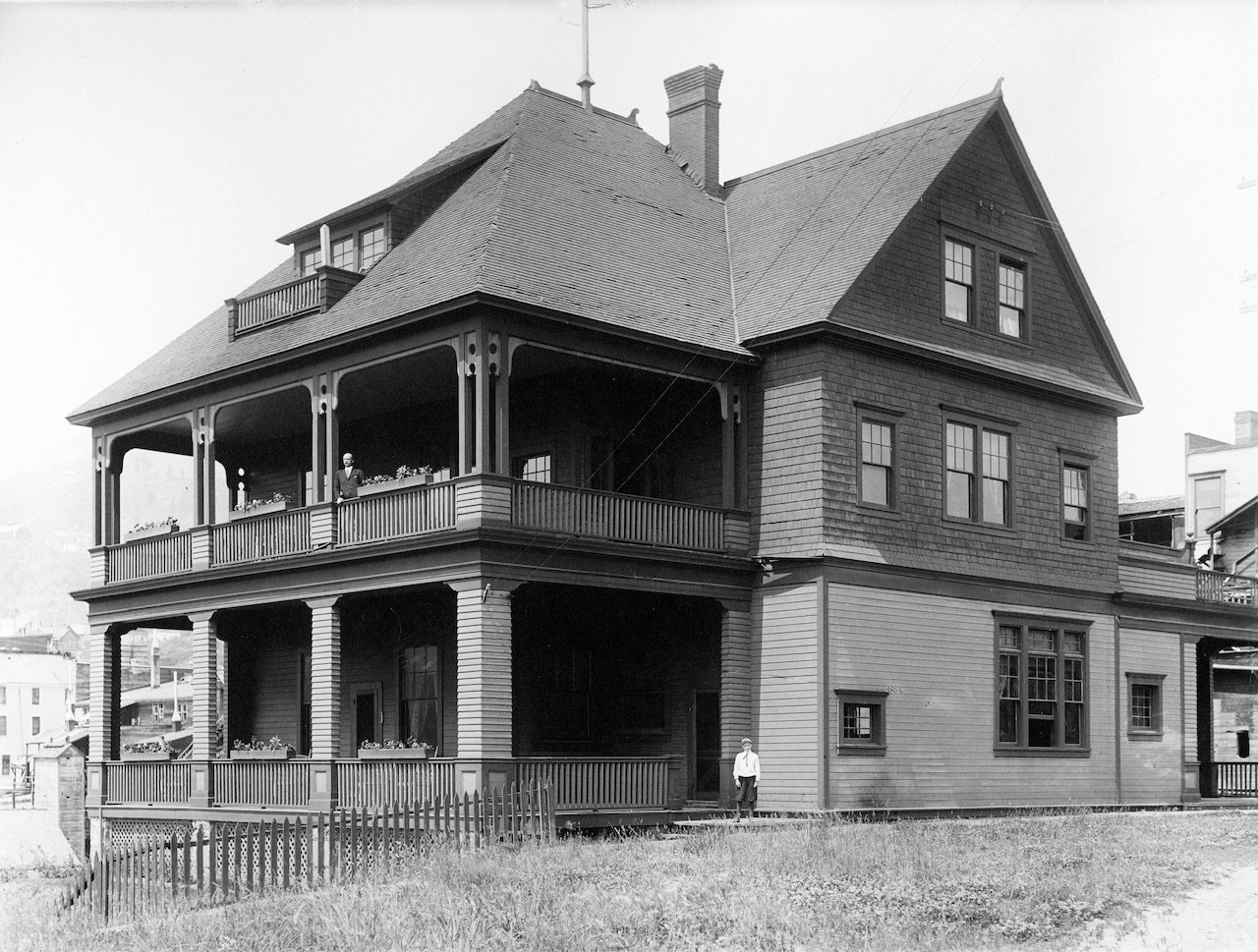
The Rossland Club
The Rossland Club was an exclusive gentlemen’s club that existed in Rossland from 1896 to 1969. Boasting a membership of leading professionals and a reputation known within British Columbia and beyond, the club’s activities consisted mainly of socialising, gambling, and drinking.

Thor Heyerdahl
Thor Heyerdahl, famous for the Kon-Tiki expedition in 1947, was once a resident of Rossland and an employee of the Consolidated Mining and Smelting Company in Trail. For a brief period in 1941, Heyerdahl, his wife, and two children lived in Rossland. In the city, Heyerdahl gave at least two known speeches to the Junior Board of Trade and the Golden City Club.

Mike Wigley - Tales from a Splitboarder: Walking to Glory
Mike Wigley, splitboarder extraordinaire, was the Rossland Museum & Discovery Centre's December Speaker Series presenter. It was a spirited kick-off to winter in Rossland! Mike regaled us with tales from his adventures skiing Old Glory Mountain and wove in some of the history of Old Glory and his journeys along the historic routes for accessing that area from Rossland.
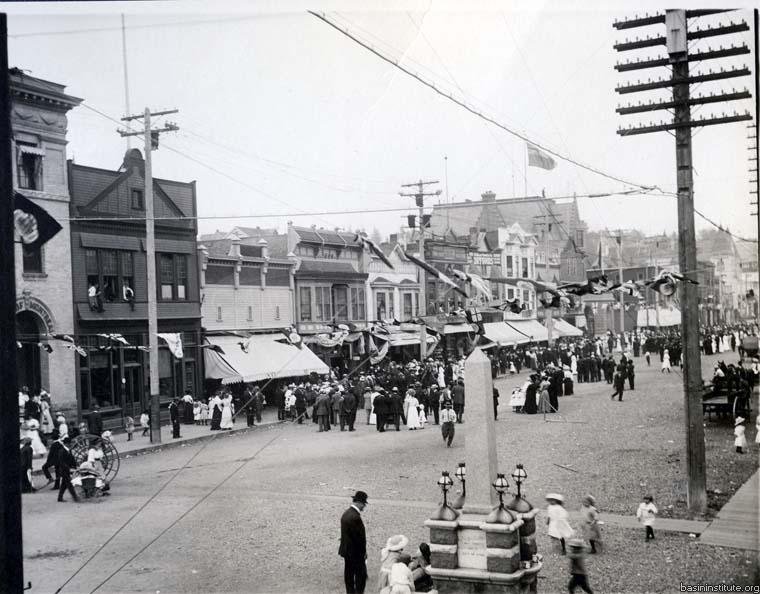
Harry Measure: "Mountain Resorts & Resort Communities: Origins & Future Opportunities."
Harry Measure, an Urban Designer + Historian, shared a presentation entitled "Mountain Resorts & Resort Communities: Origins & Future Opportunities" for the Rossland Museum & Discovery Centre’s October Speaker Series, Harry shared his extensive research and lived experience from designing, planning, and living in mountain resort communities all over the world. In this presentation, he analysed the mountain resorts of the Columbia Basin, shared some of the insights he’s acquired from his work all over the world, and considered possible futures and opportunities for our Golden City.

William "Spike" Treverton - Signalman for the 2nd Canadian Infantry Division WWII
The Rossland Museum has an ongoing project to learn more about the men and women that served in the armed forces overseas. We will continue to add information as it comes available. We will remember them.
William Treverton (1910-1984)
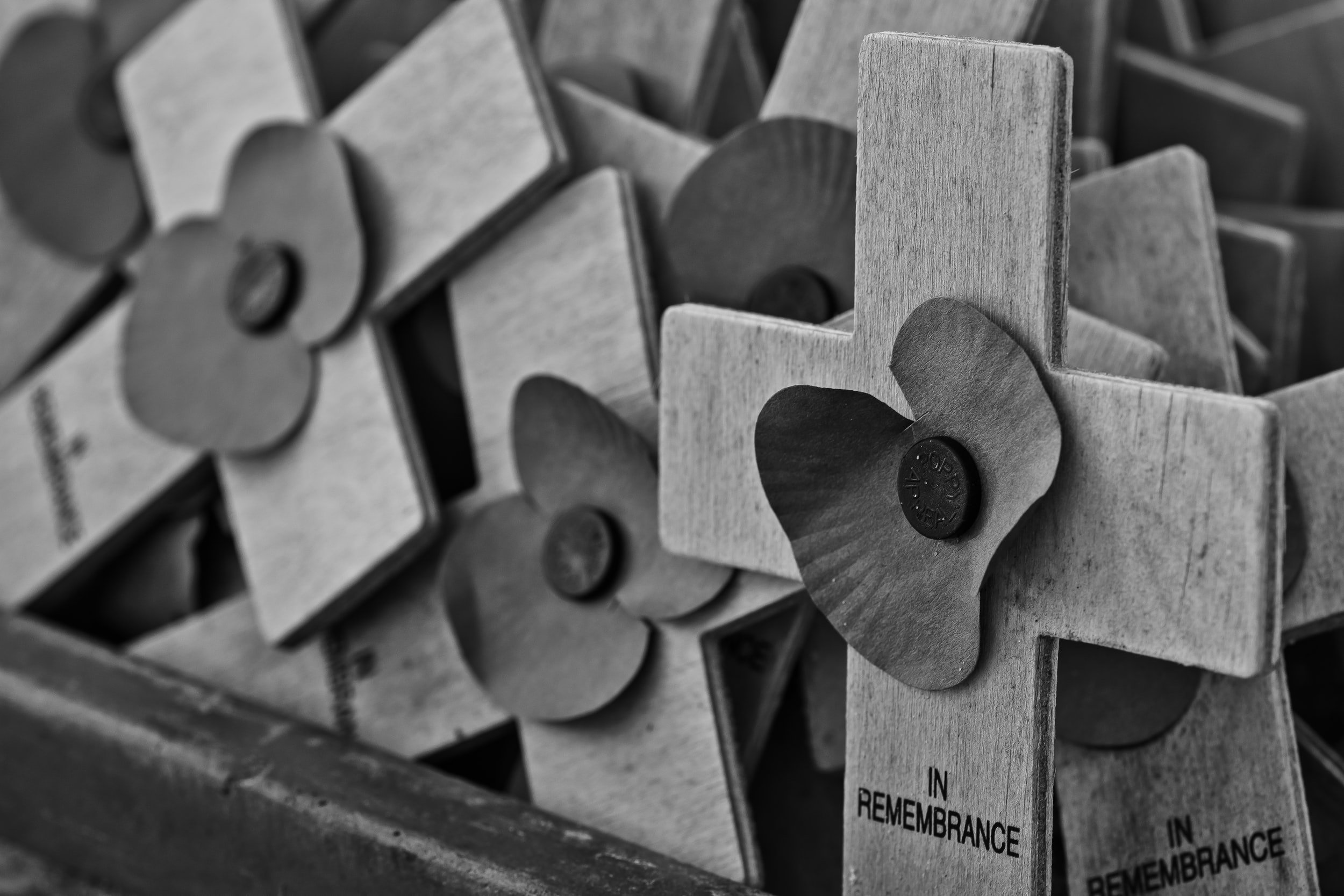
Percival Knight Allen - Trooper for the Lord Strathcona's Horse Boer War
The Rossland Museum has an ongoing project to learn more about the men and women that served in the armed forces overseas. We will continue to add information as it comes available. We will remember them.
Percival Knight Allen (1875-1917)

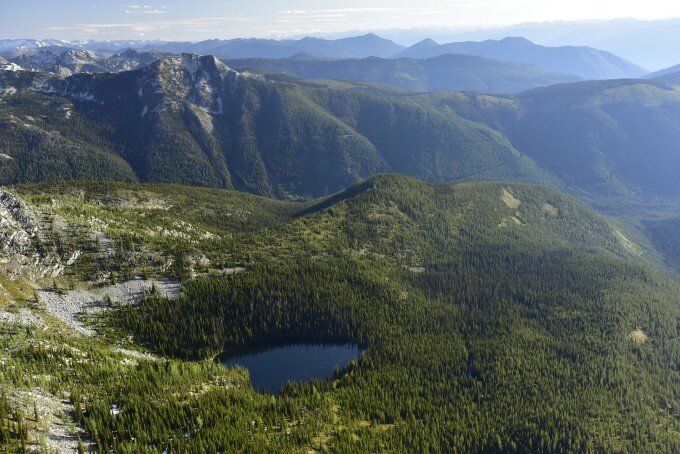
Adrian Leslie: Whitebark Pine Ecosystem Restoration
The Rossland Museum’s June Speaker Series branched out from our usual topics. On June 23rd, 2021, Adrian Leslie from the Nature Conservancy of Canada came to the Rossland Museum to talk about whitebark pine ecosystem restoration! Adrian Leslie is a biologist with a focus on high elevation whitebark pine ecosystem restoration, and is the manager of the Darkwoods Conservation Area with the Nature Conservancy of Canada (NCC). Adrian discussed whitebark pine ecology and restoration in the West Kootenays.

The Gold Fever Follies: A Rossland Tradition for Over 30 Years!
Rossland’s Gold Fever Follies show, the summer tradition that all Rosslanders know and love began as an idea in 1986. This story is a testament to one man’s devotion to live theatre and his community: this man is Ray Furlotte. Learn more about this local cultural treasure!
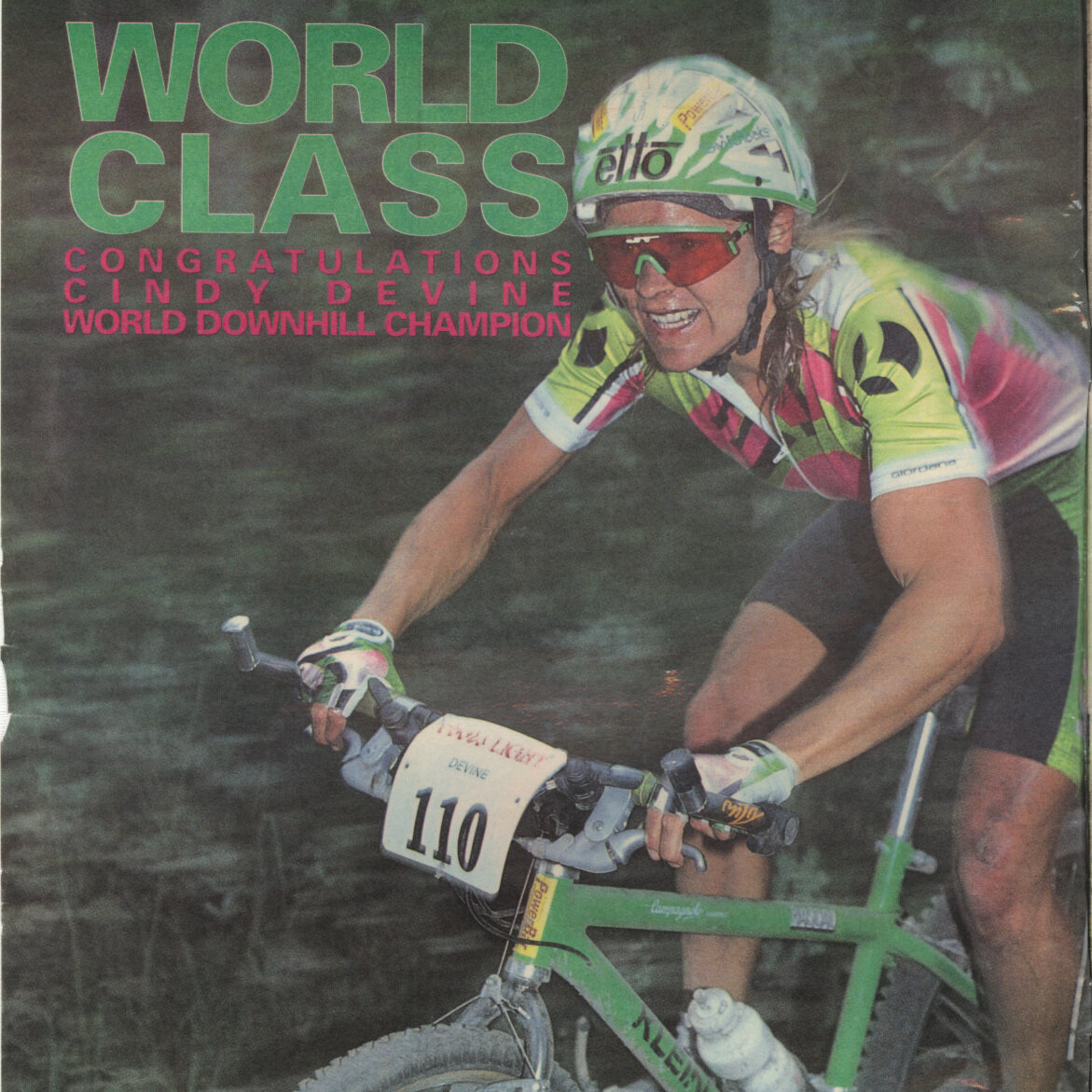
Cindy Devine: "Ticket to Ride" - Cultivation of a Champion
Cindy recalls how her active childhood set her up so well to become a world champion, the ways that mountain biking has changed over her years in the sport, and her experience of being a female racer in the early mountain biking scene throughout North America. Cindy is a living legend, and we're lucky that she's chosen Rossland as her home!

Marilyn James: Sinixt Dialect Revitalization, Countermapping, and Resurgence
On Wednesday, April 28th, 2021, Marilyn James, Sinixt Smum iem Matriarch, came to the Museum to speak about dialect revitalization and how it is directly connected to the important work of counter-mapping (and vice versa).

The Miners’ Union Hall (circa 1898) + The Rossland Provincial Courthouse (circa 1900)"
‘Metaphors of Conflict: The Miners’ Union Hall (circa 1898) + The Rossland Provincial Courthouse (circa 1900)’ will discuss the origins and evolution of the miners’ labor movement in the North American Inter-mountain west, and its conflict with industrial capitalism and government during the second half of the 19th century’.
The spread of organized labor to Rossland, BC during the final years of the 19th century will also be discussed to better understand Rossland’s international significance as a major venue in this heritage of conflict. Through careful analysis of the architectural styles and decorative elements exhibited in Rossland’s Western Federation of Miners’ Union Hall and the BC Provincial Courthouse, this conflict will be interpreted and will further establish the unique significance of these two cultural resources as visual metaphors of this socio-political conflict. This analysis of architectural styles as metaphors of this conflict has not been addressed in any previous research.

The "Spanish Flu" in Rossland
With Germany’s surrender to the Allied Powers, World War I finally ended on November 11, 1918, but the flu was just getting going in Rossland. From late October 1918 until February of 1919, nearly everyone got the flu. Almost 50 people died in five weeks - five weeks of absolute hell. Those that could continued to help, just as Rosslanders always do. From October 25 until the end of November, 47 people died. The last three people died in January and February. The majority of victims who were in their prime, between 20-35 years of age. Everyone who had it either recovered completely, experienced cognitive, respiratory effects or died, but ultimately herd immunity was achieved probably in February 1919 when the virus appears to have dissipated.

Pte. Alfred Lindsay - Canadian Infantry 7th Battalion WWI
The Rossland Museum has an ongoing project to learn more about the men and women that served in the armed forces overseas. We will continue to add information as it comes available. We will remember them.
Private Alfred “Fred” Lindsay (1893-1915)

Edmund "Eddie" Thomas Cox - RCAF Pilot Officer (WWII)
The Rossland Museum has an ongoing project to learn more about the men and women that served in the armed forces overseas. We will continue to add information as it comes available. We will remember them.
Edmund “Eddy” Thomas Cox (1917-1943)
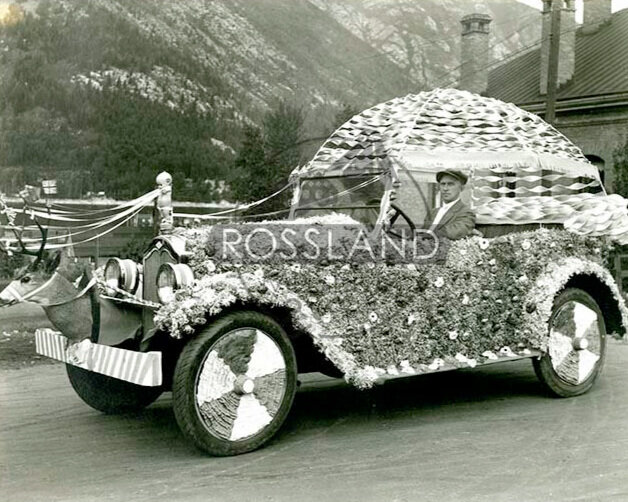
The Rebekahs
The Deborah Rebekah Lodge #13, a fraternal order and service organization associated with the Independent Order of Odd Fellows (IOOF), was instituted in Rossland on April 12, 1899. Over their 121 years of service in Rossland, the Lodge has made numerous contributions to the community, supporting local, provincial, national, and international causes such as health care, the war effort, the 1908 Fernie fire survivors, the 1948 Trail flood cleanup, and a local scholarship program. In the late 1970s, members of the Lodge started what would become the legendary Rebekah Rhythms, or the "Granny Band," which brought smiles and laughter to countless Rosslanders for over 30 years.
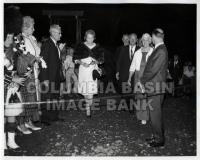
Phyllis Gregory Turner Ross
Called “Miss Serene Efficiency” and “The Lady with the Facts,” Phyllis Gregory Turner Ross was a great contributor to Canadian political, social, and cultural life. To date, Phyllis is most well-known as the mother of John Napier Turner, who in 1972 became Minister of Finance under Pierre Trudeau, and had a brief, three-month stint as Prime Minister of Canada in 1984. She was an incredible woman in her own right and we’re pleased to highlight her personal legacy!

Alice Jesse Weber
Alice Jesse Weber found herself in Rossland in the boomtown days of the late 1890s. She was raised in Kansas, and set off on her own as soon as she could. She headed west and rode the wave of gold rushes from California to Alaska. She married a Mr. Weber in Seattle and had a beautiful daughter; a picture of her daughter was one of her greatest treasures. According to Jess, her husband had not treated her well, and she left her family and drifted across the border to British Columbia, eventually settling in Rossland.

"The Girl" - A Memoir by Susie McClung Inghram (1936)
In 1964, the Rossland Museum received a copy of Susie McClung Inghram’s memoirs published in 1936. Susie wrote her memoirs over the course of her time in British Columbia (Rossland, Midway) and northern Washington state (Spokane) from 1893-1897. The Girl, as Susie calls herself throughout the booklet, vividly describes the realities of life in boomtown Rossland from her perspective as a rare female in that setting.
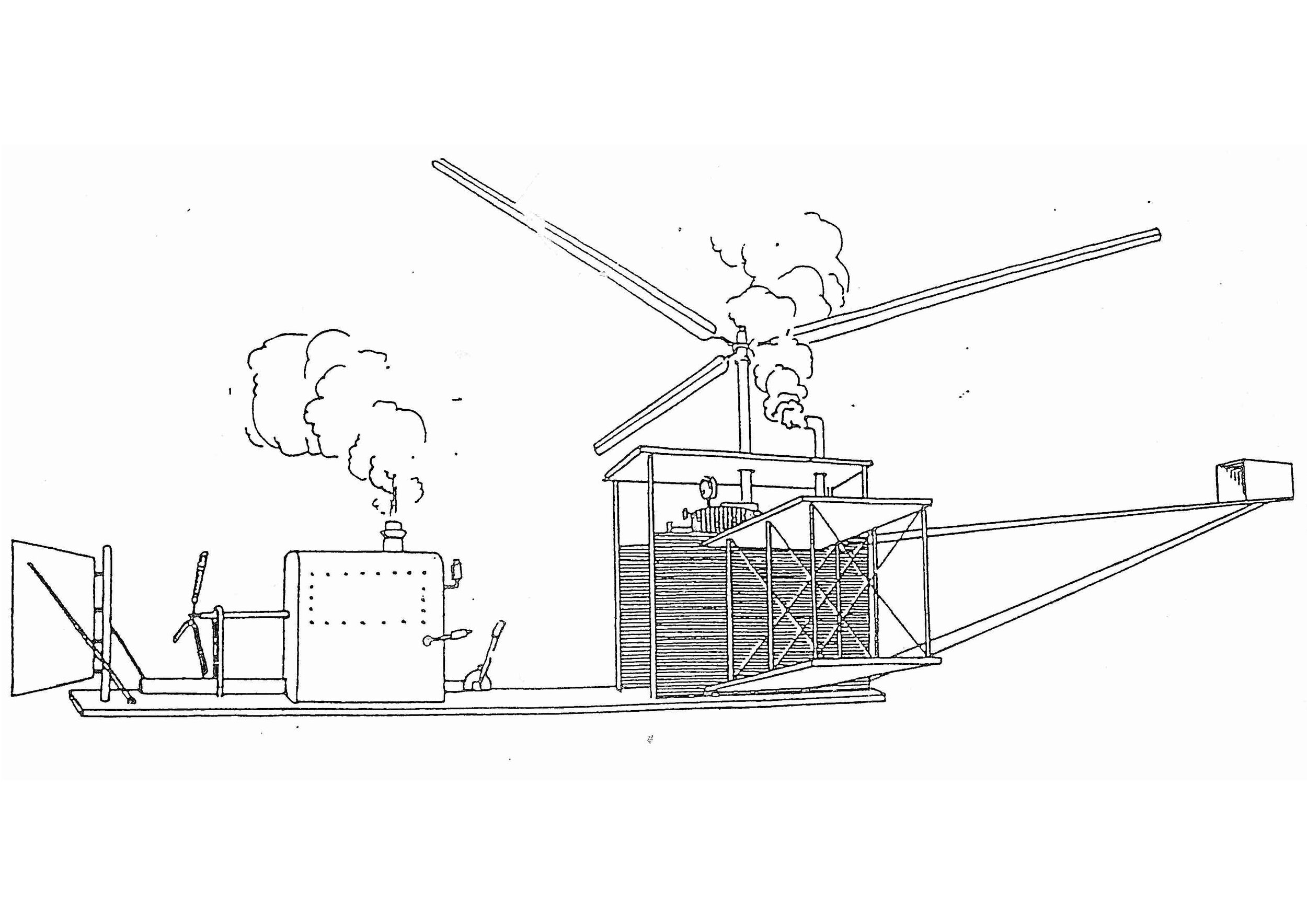
The Flying Steamshovel
How Could They Forget the Flying Steamshovel?
There has been, and still is, considerable controversy surrounding this peculiar story. As you read on, just keep in mind:
The Wright Brothers’ first powered, sustained, and controlled airplane flights took place in 1903 in Kitty Hawk, North Carolina; and
Paul Cornu is credited with the first free vertical ascent in a helicopter in 1907, France
Meanwhile, the Flying Steamshovel is reported to have flown in 1901! SO, should the Golden City be acknowledged as the true birthplace of man’s conquering of gravity?
-
2024
- Dec 2, 2024 The Old Dewdney Trail Dec 2, 2024
- Dec 2, 2024 Lights, Camera, Digitization! Dec 2, 2024
- Nov 5, 2024 Remembering Our Veterans: 2024 Veteran Highlights Nov 5, 2024
- Jun 17, 2024 Learning mxiɬp - Cedar in the Sinixt Homeland Jun 17, 2024
- Jun 5, 2024 Growing Up in Remarkable Times in Rossland Jun 5, 2024
- Jun 2, 2024 Collections Care: Textiles Jun 2, 2024
- Mar 14, 2024 A Legend Carved in the Slopes: The History of the Grey Mountain Grind Mar 14, 2024
- Feb 29, 2024 Speaker Series Replay: “The Ice Man from British Columbia” with Bill Hanlon Feb 29, 2024
- Jan 16, 2024 History of the S.S. Rossland Jan 16, 2024
-
2023
- Dec 6, 2023 Red Mountain Volunteer Ski Patrol Dec 6, 2023
- Jul 30, 2023 An Introductory History of Pride in the West Kootenays Jul 30, 2023
- Feb 14, 2023 Behind the Curtain: The History of the Rossland Light Opera Players Feb 14, 2023
- Feb 8, 2023 James W. Thompson Feb 8, 2023
- Jan 18, 2023 Smelter Wars by Ron Verzuh Jan 18, 2023
-
2022
- Nov 1, 2022 Rossland Red Cross: Women's Volunteer Service During the Second World War Nov 1, 2022
- Nov 1, 2022 Air Raid Precautions (ARP): Rossland Civilian Defence During the Second World War Nov 1, 2022
- Nov 1, 2022 James "Jimmy" Harper: Flight Lieutenant in the Royal Canadian Air Force (WWII) Nov 1, 2022
- Nov 1, 2022 Garth "Bunny" Beley: Flight Officer in the Royal Air Force (WWII) Nov 1, 2022
- Nov 1, 2022 Benjamin "Ben" Allen: Private in Princess Patricia's Canadian Light Infantry (WWI) Nov 1, 2022
- Mar 30, 2022 Jessie McQueen Mar 30, 2022
- Mar 30, 2022 The Rossland Club Mar 30, 2022
- Feb 8, 2022 Thor Heyerdahl Feb 8, 2022
-
2021
- Dec 14, 2021 Mike Wigley - Tales from a Splitboarder: Walking to Glory Dec 14, 2021
- Nov 9, 2021 Harry Measure: "Mountain Resorts & Resort Communities: Origins & Future Opportunities." Nov 9, 2021
- Nov 5, 2021 William "Spike" Treverton - Signalman for the 2nd Canadian Infantry Division WWII Nov 5, 2021
- Nov 5, 2021 Percival Knight Allen - Trooper for the Lord Strathcona's Horse Boer War Nov 5, 2021
- Oct 26, 2021 Rossland's Historic Cemeteries Oct 26, 2021
- Jul 20, 2021 Adrian Leslie: Whitebark Pine Ecosystem Restoration Jul 20, 2021
- Jul 9, 2021 The Gold Fever Follies: A Rossland Tradition for Over 30 Years! Jul 9, 2021
- May 27, 2021 Cindy Devine: "Ticket to Ride" - Cultivation of a Champion May 27, 2021
- May 13, 2021 Marilyn James: Sinixt Dialect Revitalization, Countermapping, and Resurgence May 13, 2021
- Mar 31, 2021 The Miners’ Union Hall (circa 1898) + The Rossland Provincial Courthouse (circa 1900)" Mar 31, 2021
- Feb 17, 2021 The "Spanish Flu" in Rossland Feb 17, 2021
-
2020
- Nov 5, 2020 Pte. Alfred Lindsay - Canadian Infantry 7th Battalion WWI Nov 5, 2020
- Nov 3, 2020 Edmund "Eddie" Thomas Cox - RCAF Pilot Officer (WWII) Nov 3, 2020
- Oct 30, 2020 The Rebekahs Oct 30, 2020
- Oct 28, 2020 Phyllis Gregory Turner Ross Oct 28, 2020
- Oct 27, 2020 Alice Jesse Weber Oct 27, 2020
- Oct 21, 2020 "The Girl" - A Memoir by Susie McClung Inghram (1936) Oct 21, 2020
- Jun 11, 2020 The Flying Steamshovel Jun 11, 2020
- May 22, 2020 Quarantine and Isolation in Early Rossland May 22, 2020
- May 21, 2020 British Columbia Firefighters’ Museum May 21, 2020
- May 5, 2020 The Liberation of the Netherlands and Victory in Europe (V-E) Day - May 1945 May 5, 2020
- Mar 30, 2020 #MuseumAlphabet Mar 30, 2020
- Feb 25, 2020 Rossland Range Plane Crash Feb 25, 2020
- Jan 10, 2020 Music City: The Rossland City Band Jan 10, 2020
-
2019
- Jul 8, 2019 Was Rossland built on a dormant volcano? Jul 8, 2019
- Jul 5, 2019 Inventing the Walkie Talkie Jul 5, 2019
- Jan 25, 2019 Agnew & Co. Jan 25, 2019
-
2018
- Oct 10, 2018 Some Little Known Incidents And Characters From Rossland's Golden Age Oct 10, 2018
- Aug 14, 2018 Ross Thompson Aug 14, 2018
- Aug 14, 2018 Yes, There Was Skiing Before We Built The Chairlift Aug 14, 2018
- Aug 14, 2018 Mid-Winter Mardi Gras: Rossland's Winter Carnival Aug 14, 2018
- Aug 14, 2018 The Chinese and Chinatown of Rossland Aug 14, 2018
- Aug 14, 2018 Olaus Jeldness by Ron Shearer Aug 14, 2018
